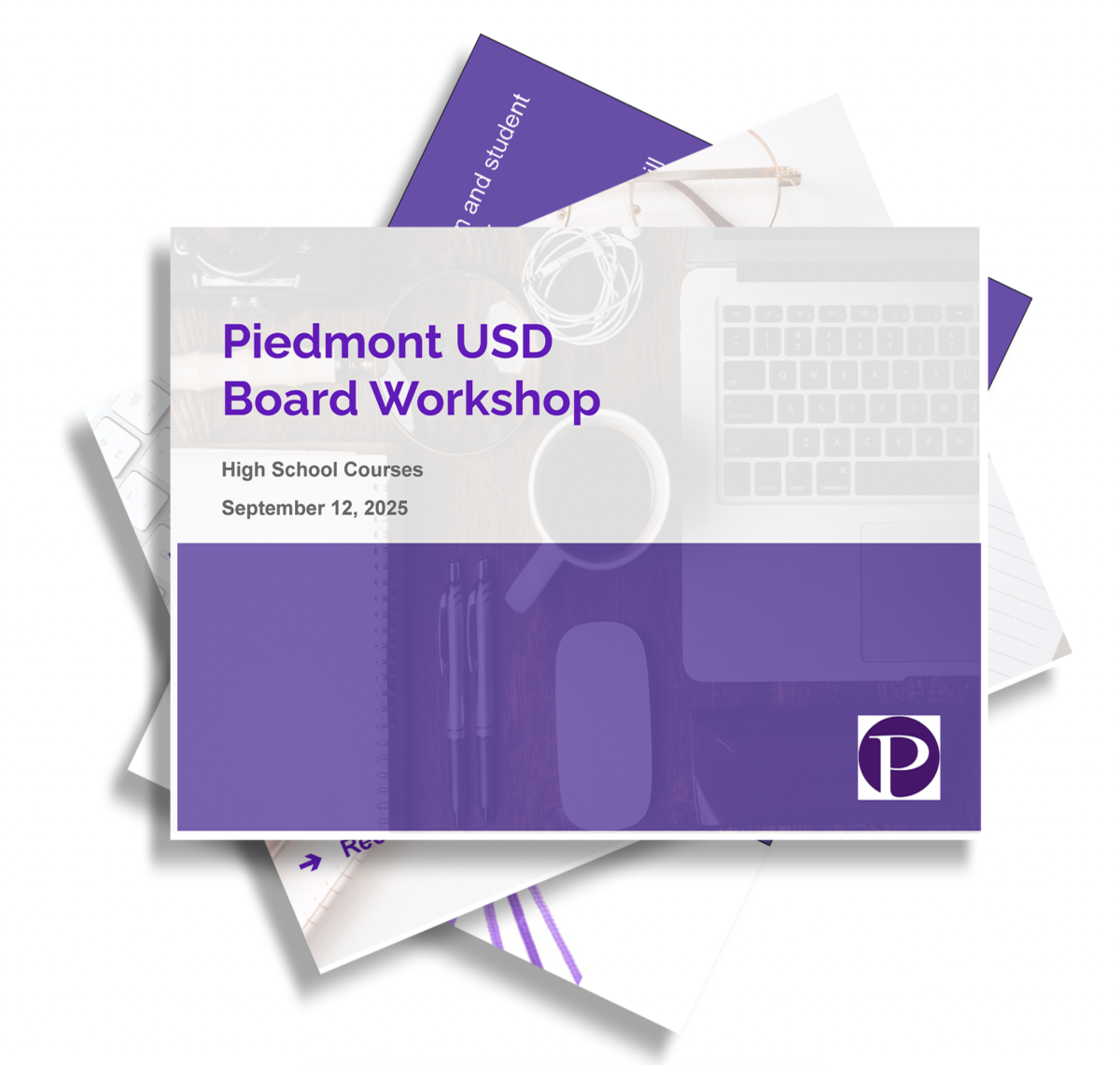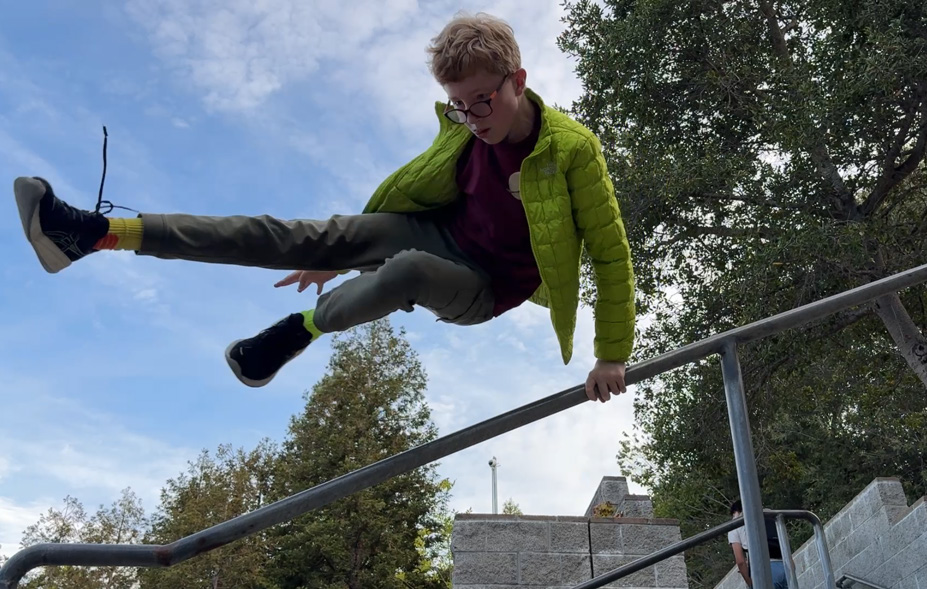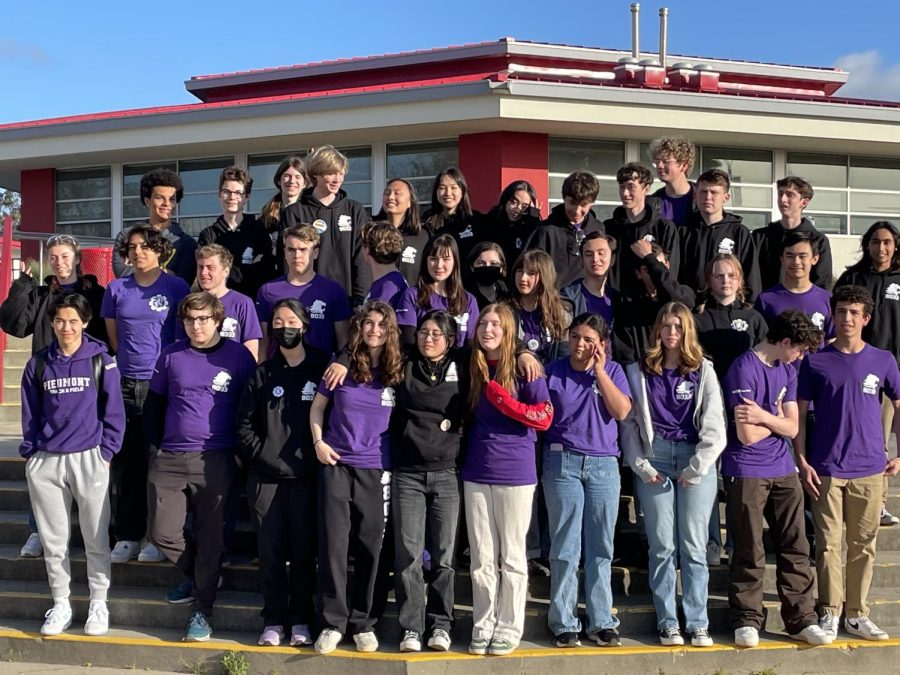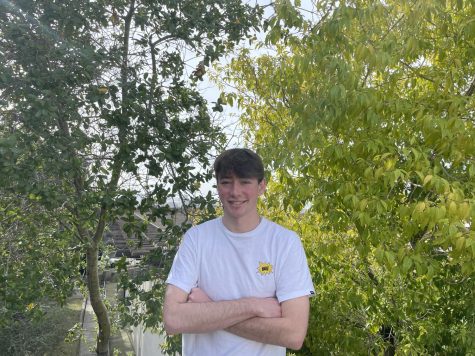Robotics Team Enjoys Continued Success
Apr 1, 2023
Finishing in the top five in back to back regionals, finaling in both, and ranked tenth in California. This sounds like a seasoned FIRST Robotics Challenge (FRC) team. However despite being in only their third season of competition, Team 8033, or Highlander Robotics, is proving that their trip to the world championships last year was no fluke.
The team kicked off their season at the Central Valley Regional on March 9, finishing qualifications ranked fourth, and losing in finals. However, with a fifth seeded finish at the Monterey Bay Regional on April 1, they secured a wild card spot to the 2023 FRC World Championships in Houston Texas on April 19.
“With the success of last year everyone got really excited for the season and everyone put in a lot of work over the summer and the offseason,” said senior and team captain Alex Ware.
Ware said this season the team was fueled by an influx of new participants, as the team grew from 30 to 54 members.
“The success of going to worlds motivated people. It also got the word out that we were a pretty good team, and that helped with recruiting,” Ware said.
This meant that Highlander Robotics could expand operations beyond the Mechanical and Software subteams, which work on building the robot, and put more resources into new aspects of the team.
“Now that we have more members, we also have an entire operations branch, which is broken up into business, outreach, design and branding [and] media. So now we can run an Instagram, a YouTube channel, [and] we made a new website,” Ware said.
Additionally, the team doubled its budget from last year, jumping from $38,000 to $72,000, which consists of registration fees, sponsors and grants. Team 8033 has received grants from large tech companies over the past seasons, including Apple, Google and NASA.
Highlander Robotics has taken advantage of these opportunities after two top finishes and a qualification for world championships.
“Coming into the competition we knew we had a good robot, obviously we didn’t expect it to be that good. There was a bit of luck involved. But it was also just everyone doing the best they could.” Ware said.
Unlike the past three seasons, this year’s game does not involve shooting balls into a target. Instead, robots aim to place cubes and cones onto different levels in order to score points. Each match starts with a 15 second autonomous period, followed by 2 minutes and 15 seconds of match time where the robot is controlled by a driver. At the end of a match, a team is awarded extra points if they balance on a platform.
Additionally, these performances were aided by Team 8033’s “secret weapon”, their new scouting app, said junior Peter Stokes.
Ware said that knowing the strengths and weaknesses of multiple teams’ robots is very important for team success, and scouting the competition is essential.
While teams are assigned during the qualification rounds, during the finals bracket, the top teams pick their teammates.
Freshman Collin Cameron was assigned to scout at last year’s Chezy Champs Invitational, where he realized how inefficiently they collected and cataloged data.
“Back then it was just a google form that gets linked to a google sheet and it was extremely inconvenient to input the data into the form in the heat of a match,” Cameron said.
At lunch, along with a couple other members of the software team he designed an IOS app that allowed them to collect more data in one place, including their average scores and paths the robot takes during their autonomous period.
Throughout the entire offseason the team has been improving the app’s design.
“Scouters put in all the information: what [the robot] is picking up, what level they are placing it on, and also if they balance on the charge station at the end.” Freshman Cassie Colby said, who works on the analysis.
The data goes into the dashboard app where it’s all compiled and analyzed.
“It uses standard deviation to predict who’s going to win,” Colby said.
Team 8033 debuted this app at the Fresno Regional, but it had even more success at the Monterey Regional.
“This had about a 95 or 90 percent accuracy in predicting matches unless a robot broke down or had a problem.” Ware said.
This garnered the attention of many other teams including 971 Spartan, a veteran team with lots of experience, who wanted to know more about the app.
“Spartan picked us and we were very happy with that,” Ware said.
Ware said the strong alliance with Spartan ultimately led the team to the finals.
“We didn’t see any other great solutions or anything innovative besides our app at the competition.” Colby said.
Following the values of Gracious Professionalism, a core value of the FIRST Robotics Challenge, Highlander Robotics plans to share their new app with certain teams at World Championships, although password protecting their own data, said Cassie.
Going into Houston, with their new scouting advantage, driver sophomore Vaughn Khouri hopes to bring home a high placing finish.
“We already did insanely well considering our team’s age last year and being an 8000’s team that captains an alliance, especially if we have the data to back up that we should be in that position. This is really a statement in the community that newer teams have a shot, and I think that’s pretty cool that we can represent that,” Khouri said.





























